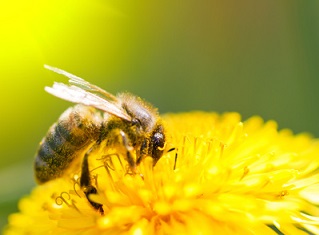by
Stepy —
September 6, 2013
- Have you heard of bee-friendly gardens? Maybe you even have one. A new study was recently published showing that gardeners who are planting “bee-friendly” gardens may actually be harming bees more than helping them.
- Two environmental group called Friends of the Earth, and the Pesticide Research Institute conduced a study.
- They tested plants from major garden stores like Home Depot, Lowe’s, and Orchard Supply Hardware.
- The study showed that a majority of the plants were treated with harmful bee-killing pesticides. Of all the plants sampled, the one with the highest levels of pesticides was the tomato plant purchased in the San Francisco Bay Area.
- Timothy Brown, one of the authors of the study explained, “The pilot study confirms that many of the plants sold in nurseries and garden stores across the U.S. have been pre-treated with systemic neonicotinoid insecticides, making them potentially toxic to pollinators.”
-
- Bee kills are not the only detrimental effect of these pesticides. The study also adds, “Although bee kills are visible impacts of systemic insecticides, exposure to levels of neonicotinoids that don’t cause immediate bee death can still damage colonies through the less apparent effects on the immune system (making the bees more vulnerable to disease), learning and memory (affecting the bees ability to find food and return to the hive), and reproduction (reducing queen fertility).”
- The study published the following recommendations for consumers:
- Let your local nursery manager know that you will not purchase plants that contain neonicotinoids and ask them to contact their corporate headquarters
- 1. Purchase organic plants or organic seeds and grow them in organic potting soil.
- 2. Avoid bee-toxic pesticides in your garden. Provide a suitable habitat to attract beneficial insects that will prey on pests.
- 3. Use insecticidal soaps, oils, or other eco-friendly pest products.
- 4. Do not buy products containing neonicotinoids
- 5. If you have any of these products at home, make sure you remove them from your garden
- For more info about protecting your local bee community.



















3 Comments